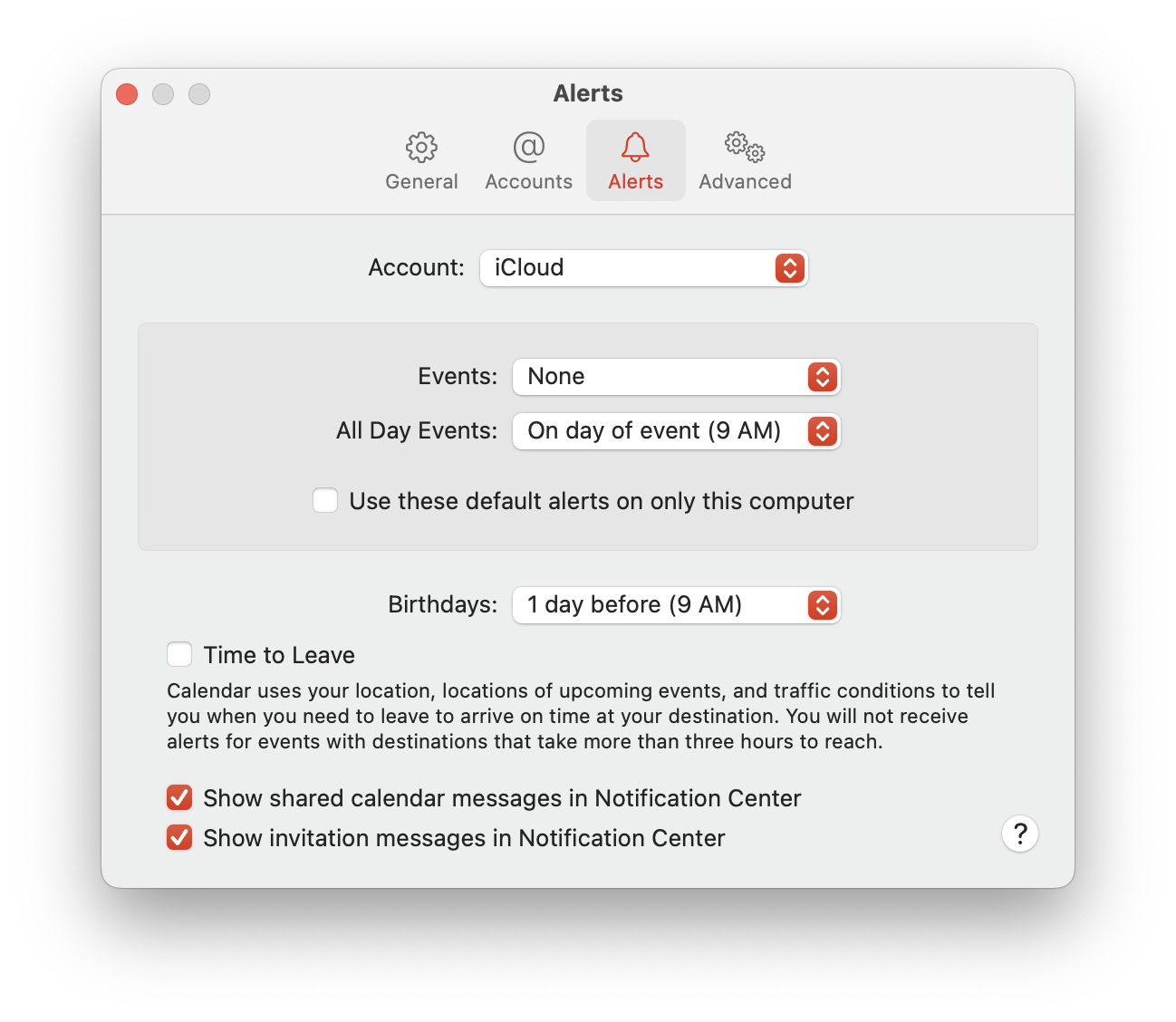
 Edit Calendar
Edit Calendar
Is it at all possible to simply edit a calendar without having to delete my current one? Thanks!

Hi, thanks for using Hebcal!
Unfortunately, once you subscribe to a holiday calendar feed, it is not possible to make changes to your settings. You will indeed need to unsubscribe and then resubscribe to get an updated holiday calendar.
For personal Yahrzeit calendars, see this article about making changes:
https://www.hebcal.com/home/632/how-to-make-changes-to-a-yahrzeit-anniversary-calendar

Hi, thanks for using Hebcal and thanks for your question. We don't currently offer a way to view/print a calendar that's primarily based on the Hebrew months. Because of our focus on integrating with other calendar apps (Apple, Google, Outlook, etc), Hebcal uses the Gregorian calendar as the primary view.
Our colleagues at Judaism 101 maintain a 3-month calendar in the format you describe:

 Yom Teruah off by a week
Yom Teruah off by a week
Yom Teruah is the first new moon after Autumnal Equinox. That puts it this year more like Gregorian September 23rd. Secular regularly gets Rosh Hashanah wrong because everyone likes the days to be nice and tidy for long weekends and such, but to keep it biblical, Feast of Trumpets is off.

Thanks for your message.
Rosh Hashanah is always observed on the first two days of Tishrei, the seventh month of the Hebrew calendar. Rosh Hashana for Hebrew Year 5784 begins at sundown on Friday, 15 September 2023 and ends at nightfall on Sunday, 17 September 2023.
The rules governing how the calendar works were developed during the rabbinic period and were fully codified by Maimonides in the Mishneh Torah in the 12th century. It would be a mistake to look only at the Bible and ignore the rabbinic sources or Rambam.
You can read more about the Hebrew calendar on Wikipedia:

Hi, thanks for using Hebcal.
We offer a tool that lets you print a year’s worth of Torah readings and Shabbat times for your location:
https://www.hebcal.com/home/shabbat/fridge
Our website is digital only, so you can print out calendars downloaded from Hebcal.

 is there a way to get csv of secular calendar showing jewish holidays going back 50 years?
is there a way to get csv of secular calendar showing jewish holidays going back 50 years?

The short answer is that if you are comfortable editing a URL, you can append something like ?ny=50 to the end of a download.hebcal.com URL to download 50 years at a time (the "ny" stands for "number of years").
1. Go to https://www.hebcal.com/hebcal
2. Fill out the form for your preferences (for example starting in 1973) and choose "Create Calendar"
3. Click the "Download" button and a modal will pop up
4. Select the "CSV" option
5. Right-click on the CSV download option and pick "Copy link address"
6. Paste the link address into your browser URL bar (but don't hit the enter button on your keyboard)
7. Append ?ny=50 to the end of the URL, then click Enter
The downloaded CSV file should cover the range 1973 - 2023. Adjust the year in step 2 above per your needs.

 How do I credit Hebcal in my code?
How do I credit Hebcal in my code?
I'm writing a custom Salesforce integration and would like to callout to the API for date conversions, birthdates, yarzheits, etc. Is there a paid version of the API? Either way, is there a line I can include to properly credit you?

Hebcal Salesforce integration sounds great!
There is no paid API. You are welcome to use Hebcal freely.
Here is some guidance in how to give credit to Hebcal
https://www.hebcal.com/home/4289/giving-appropriate-credit-to-hebcal

Thanks for using Hebcal!
To create a calendar with Israeli schedule, visit our custom calendar page at https://www.hebcal.com/hebcal and choose the "Israel holiday schedule" option instead of Diaspora, and make sure Rosh Chodesh is checked.
To enable alerts for Rosh Chodesh and other holidays, download/subscribe to the Hebcal calendar in your favorite calendar app. Go to the app settings and enable the option to alert on all-day/untimed events (see below for an example from the Apple calendar; there are similar settings in Outlook, Google Calendar, and other calendar apps).


 Zmanim calculation with elevation
Zmanim calculation with elevation
Hi
I'm using this API https://www.npmjs.com/package/@hebcal/core
I want to know if there is a way to add elevation in addition to lat, long coordinates for zmanim calculation
Thanks

Hi, thanks for using the Hebcal JavaScript library.
Zmanim, Candle-lighting and Havdalah times are derived from sunset times, which are approximated from a location (latitude, longitude) and day of year. There is no way to include elevation in the Hebcal zmanim calculations because the underlying solar calculation algorithm doesn't use elevation.
The NOAA solar algorithm claims accuracy within 2 minutes except at extreme northern or southern latitudes. Adding elevation often changes the sunset calculation by 1 minute or less, so this is within the expected margin of error.
Customer support service by UserEcho






